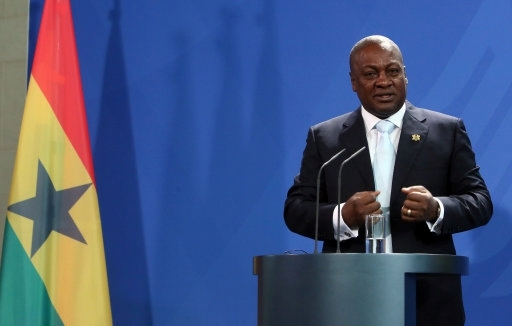
Finance Minister Seth Terkper disclosed in an interview with Reuters on Wednesday (4 March) that Ghana planned to raise a 10-year Eurobond worth USD1 billion in 2015 to pay debts maturing in 2017. Terkper’s disclosure followed an agreement between the Ghanaian government and the International Monetary Fund (IMF) at staff level barely a week ago for a USD940-million three-year loan. The IMF management and the executive board are likely to grant final approval of the loan agreement in the first week of April, with the first disbursement thereafter. Also in April, the International Tribunal of the Law of the Sea, based in Germany, will rule on a request by the government of Côte d’Ivoire to suspend Tullow Oil’s exploration operations in Ghana until the maritime dispute between the two countries is settled by end-2017. This decision is critical for Ghana’s revenue-generation capacity, significantly impacting its ability to reduce its deficit and service debt.
Challenges to government fiscal consolidation
The Ghanaian government depends heavily on withdrawals from its stabilisation fund, tax increases, and cuts in recurrent expenditure to boost revenue and reduce its fiscal deficits. On 28 February, the government announced a freeze on funding for new projects and loans, while cutting travel budgets for public officials as part of efforts to restrain spending. Given the fall in crude oil prices, which has caused an estimated USD700-million revenue shortfall (with total revenue shortfalls projected at 2% of GDP), the government plans to trim the 2015 budget by about 1.2% of GDP. By contrast with its impacts in fiscal terms, IHS assesses that the impact of lower oil prices is broadly “net neutral” to the country’s balance of payments. Ghana will make some gains from lower oil-based import costs, counterbalanced by losses from weaker oil export revenues, suggesting limited net economic impact overall.
The power crisis and the presidential election in 2016 are the two main drivers likely to undermine the government’s fiscal consolidation efforts. The power crisis threatens to disrupt economic production, so increasing the risk of lower-than-expected tax receipts, social and political protests, and industrial action in 2015. Weak leadership and political manoeuvring ahead of the 2016 presidential election are highly likely to produce an increase in government spending.
Power crisis
The ongoing power crisis is pushing firms to lay off workers and cut production. Businesses in the Tema and Accra industrial enclave which were previously excluded from power rationing have been included now. On 17 February, four companies – Coca-Cola, Mantrac, Cadbury Ghana, and Fan Milk Ghana – presented retrenchment plans to the Industrial and Commercial Workers Union (ICU) to reflect the worsening power crisis. Miners have curtailed output and the Ghana Chamber of Mines has said that the ongoing power shortages would damage production levels if the situation persists at length and may prompt some companies even to sell their mines.
The power crisis is also generating social protests by civil groups and the main opposition party. A civil society group, the Concerned Ghanaians, said it would defy a court order preventing protests planned for Independence Day on 6 March in Accra. In February, the main opposition party organised peaceful demonstrations in Accra and Kumasi, attracting tens of thousands of protesters and causing disruption of cargo movement.
Weak leadership and political manoeuvring ahead of 2016 election
President John Mahama has demonstrated over the past years that his administration easily yields to pressure from labour unions, and civil and business groups. The latest incident was on 4 March when Deputy Minister of Trade and Industry Kweku Ricketts Hagan told local radio service Joy FM that the government had suspended indefinitely the enforcement of the Ghana Conformity Assessment Programme (G-CAP) and the Advance Shipment Information (ASHI). This followed pressure from the Ghana Chamber of Commerce and Industry, Ghana Automobile Dealers’ Association, the Food and Beverages Association of Ghana, and the Ghana Union of Traders’ Association to cancel the programme altogether, which they claimed would impact negatively on businesses. The G-CAP and ASHI programmes, which were set to take effect in April 2015, aim to boost the local market and reduce importation of ‘sub-standard’ goods. The programmes would have had the ancillary impact of curbing imports of goods, such as rice, frozen fish, chicken, vegetable oil, and tomato products that cost Ghana more than USD1 billion annually, hurting the trade balance and adding to pressure on the country’s foreign-exchange reserves. There are other precedents of government policy weakness over planned removal of subsidies, wage increases, and increases in the number of public-sector workers.
Outlook and implications
Ghana has demonstrated an in-principle willingness to address its budget deficit and rising debts by resorting to the IMF for bailout funds. However, Ghana faces multiple challenges that will undermine its commitments to its fiscal consolidation plan, at least until after the 2016 presidential election.
State-revenue generation will be impacted if firms implement plans to lay off workers and cut production given the acute power-supply crisis. It is unlikely that the power crisis will improve significantly in 2015; it is likely to worsen further during the peak dry season when water levels drop dramatically at the Volta dam. Moreover, if the Côte d’Ivoire government’s request to the international tribunal to suspend offshore oil exploration by Tullow Oil in a contested maritime area between the two countries is granted, it will prove damaging for efforts to meet Ghana’s revenue target.
Ahead of the election, it will be challenging for the ruling party to reduce the number of public-service agencies given the level of protests and industrial action this would provoke in Ghana. Generally, protests have been peaceful, with small pockets of violence that have been quickly quelled by the police.
Source: ihs.com



